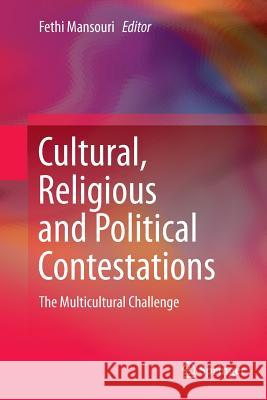Cultural, Religious and Political Contestations: The Multicultural Challenge » książka
topmenu
Cultural, Religious and Political Contestations: The Multicultural Challenge
ISBN-13: 9783319364063 / Angielski / Miękka / 2016 / 230 str.
Kategorie:
Kategorie BISAC:
Wydawca:
Springer
Język:
Angielski
ISBN-13:
9783319364063
Rok wydania:
2016
Wydanie:
Softcover Repri
Ilość stron:
230
Waga:
0.34 kg
Wymiary:
23.39 x 15.6 x 1.27
Oprawa:
Miękka
Wolumenów:
01
Dodatkowe informacje:
Wydanie ilustrowane











